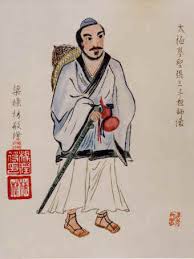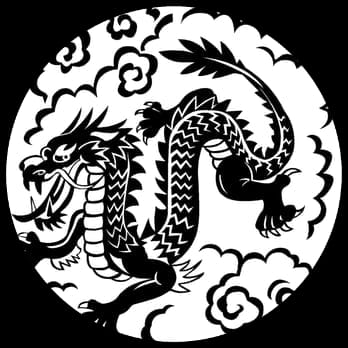FAQ
Q. Is Tai Chi Chuan a Martial Art or simply an exercise system for old people done in the park?
A. Yes the Tai Chi Chuan I teach is a complete Martial Art containing five aspects, 'Hand form', 'Push Hands', 'Self Defence', 'Weapons' and 'Internal strength'. It can be practised by people of all ages, but they cannot and should not be expected to practise it in the same way, as the type and method of the training should vary according to the capabilities of the student. All capabilities are welcome to our adult class, with some students preferring to concentrate on the form to improve overall health rather than self defence.
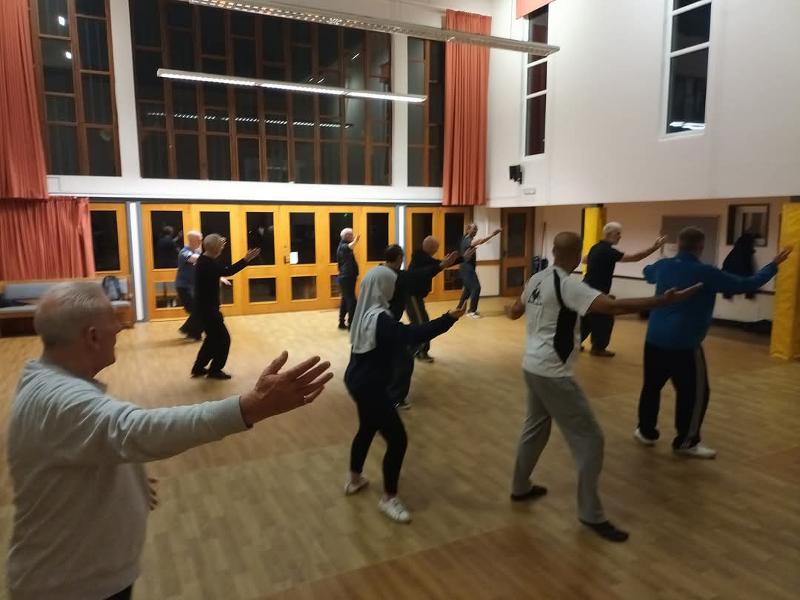
Q. Is Tai Chi Chuan useful for self defence?
A. Yes Tai Chi Chuan is a subtle, sophisticated and scientific method of self defence that employs close quarter strikes, kicks, sweeps, throws, seize control and wrestling techniques. Practice with a partner is necessary to develop our ability in using these techniques to defend ourselves and to counter-attack an opponent. We must make these techniques second nature to us, so that in a real situation we will react instinctively and decisively.
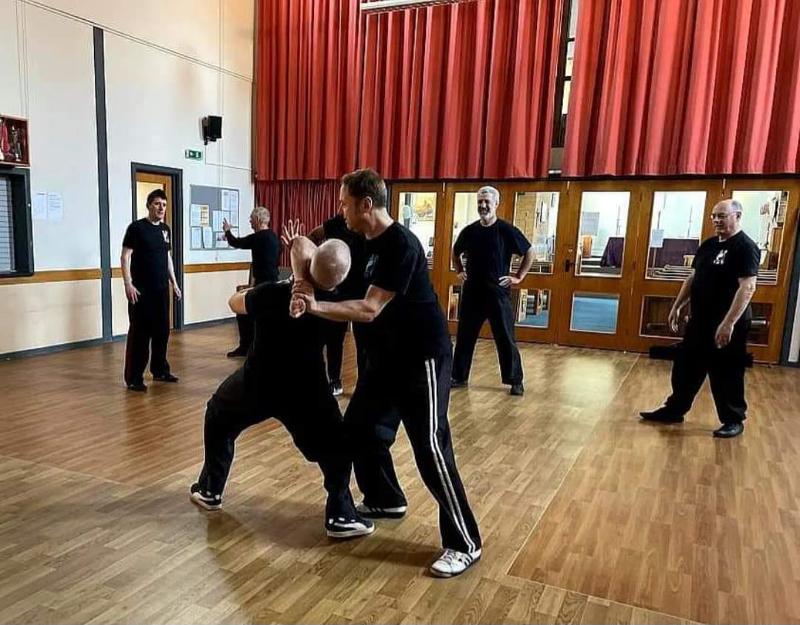
Q. Do I need special equipment, such as special shoes, to attend the classes?
A. All you need is loose fitting comfy trousers and a pair of flat training shoes/plimsols.
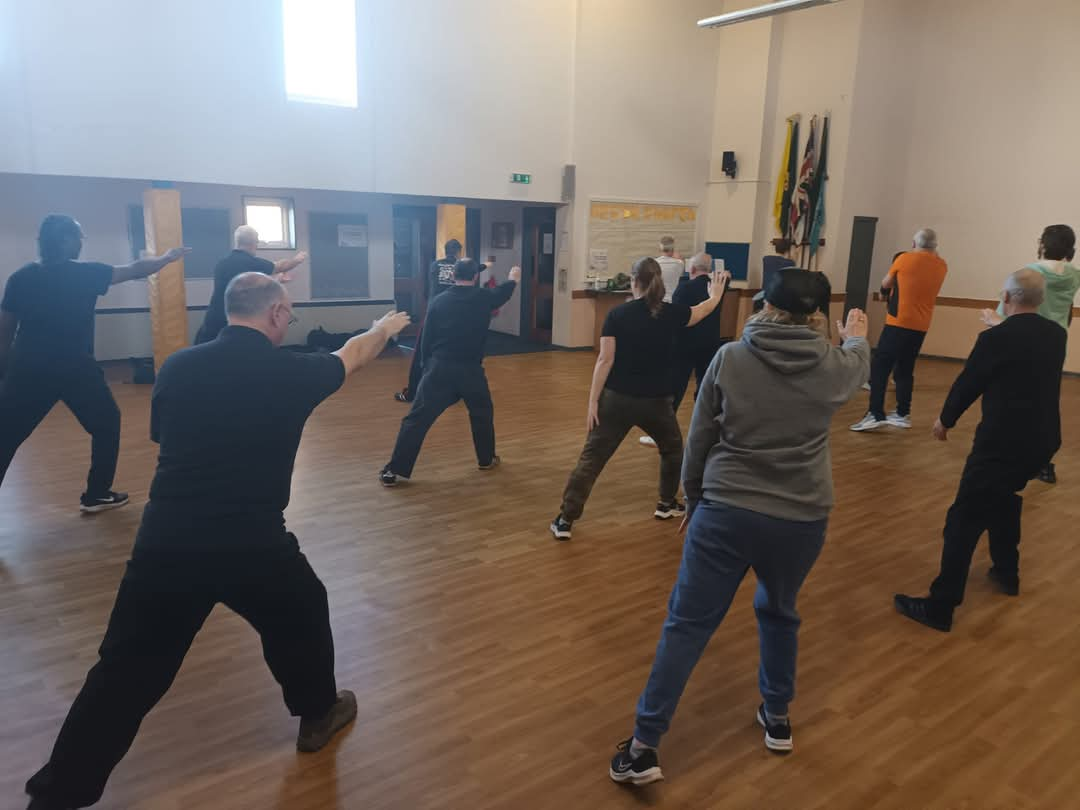
Q. Can I participate in classes without prior knowledge, even if advanced people attend the same course as me?
A. Yes the classes and courses are open to everyone and the older brothers and sisters are always very happy to share their knowledge and help and encourage those new to the art.
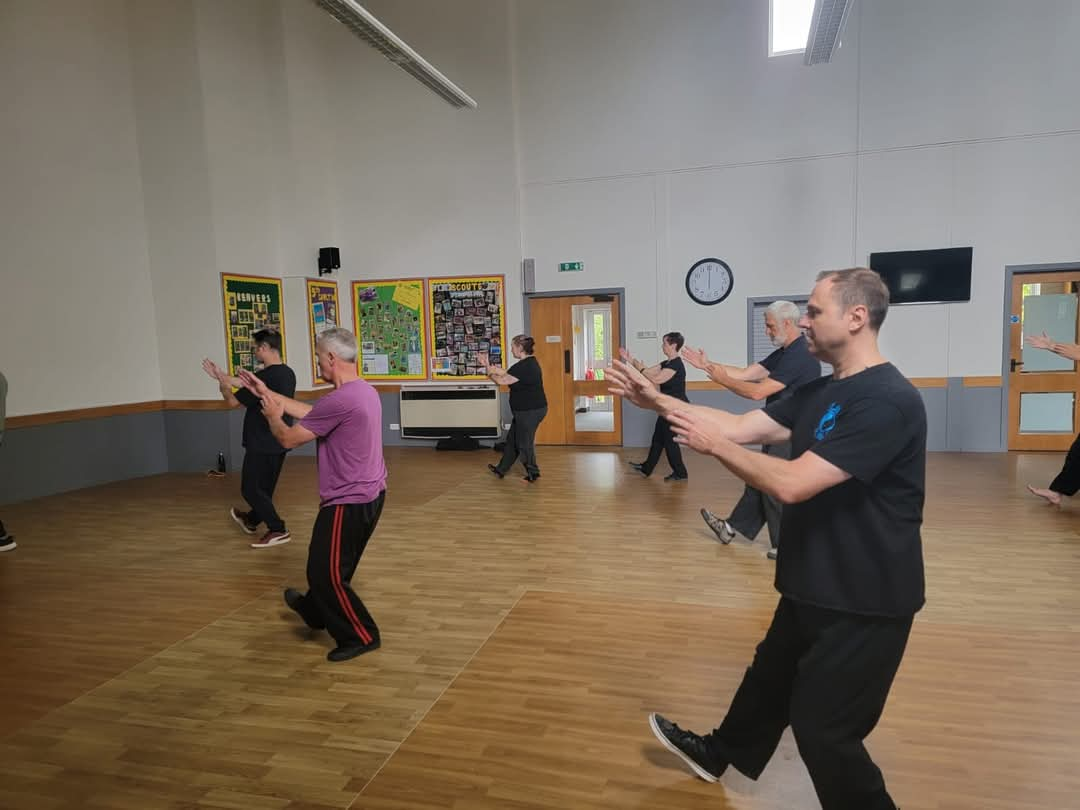
Q. Do I need to train at home outside of the course to benefit from the positive effects of Tai Chi Chuan on my health?
A. Regular exercise can only be a good thing, and it is always better to do something rather than nothing. With Tai Chi you only get out of it what you put into it, so I would recommend a regular training routine, or attend more than one class per week if possible.
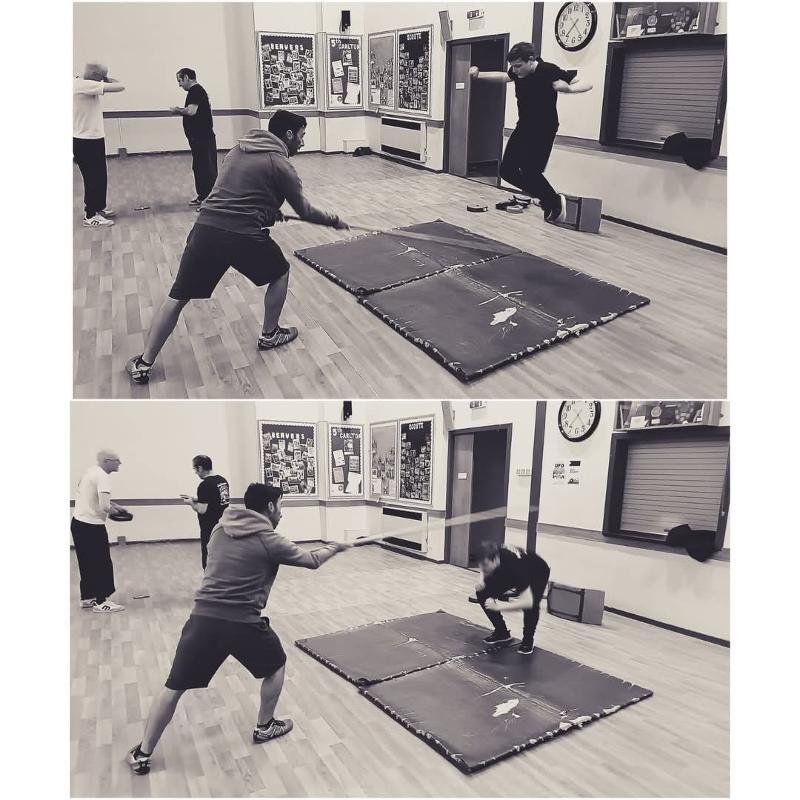
Q. What influence does Tai Chi have on cancer prevention and does it support the healing process during and after cancer treatment?
A. I gave an advanced student of The Cloud Dragon School permission to take on a role teaching at The Maggie Centre Nottingham, where she taught there for around three years. This was a well attended class and Karen's observations over this period of timewere that Cancer patients who practise Tai Chi can benefit from a variety of physical and psychological effects. In oncological settings it seems people who practise Tai Chi on a regular weekly basis can experience a lower overall cancer related fatigue, and over time generally they may find improvement in balance, strength, flexibility and mobility. Regular Tai Chi practise may also help alleviate insomnia and depression associated with cancer and it's treatments, thereby to some extent promoting feelings of well being.
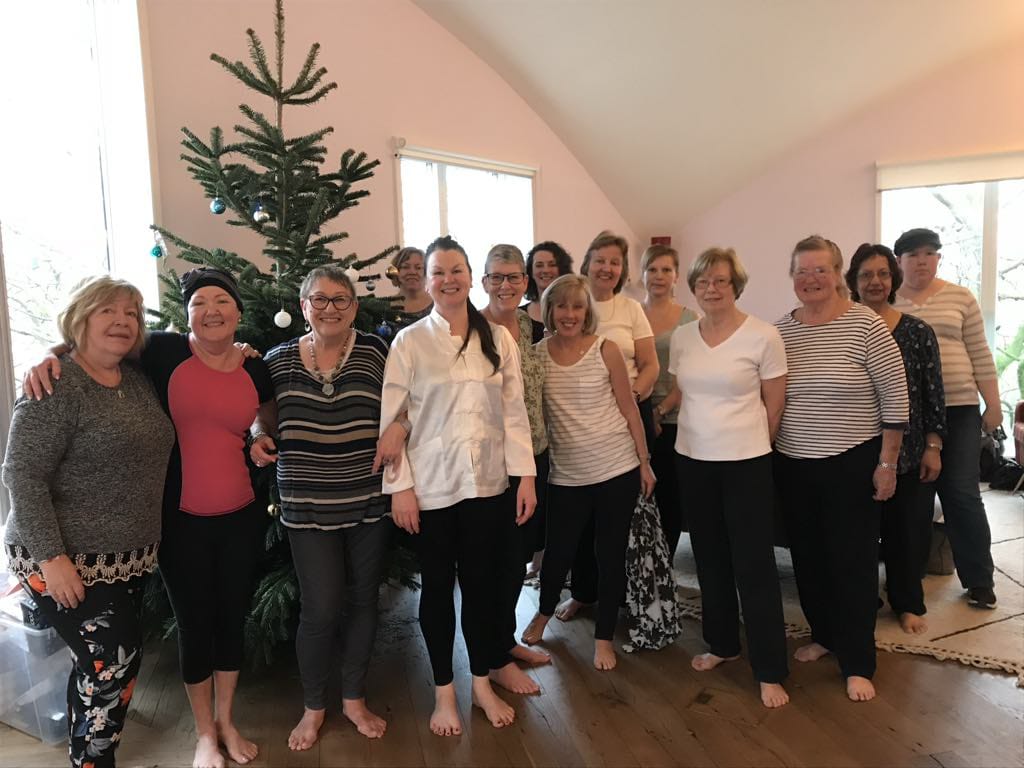
Karen Walsgrove with her students at The Maggie Centre Nottingham
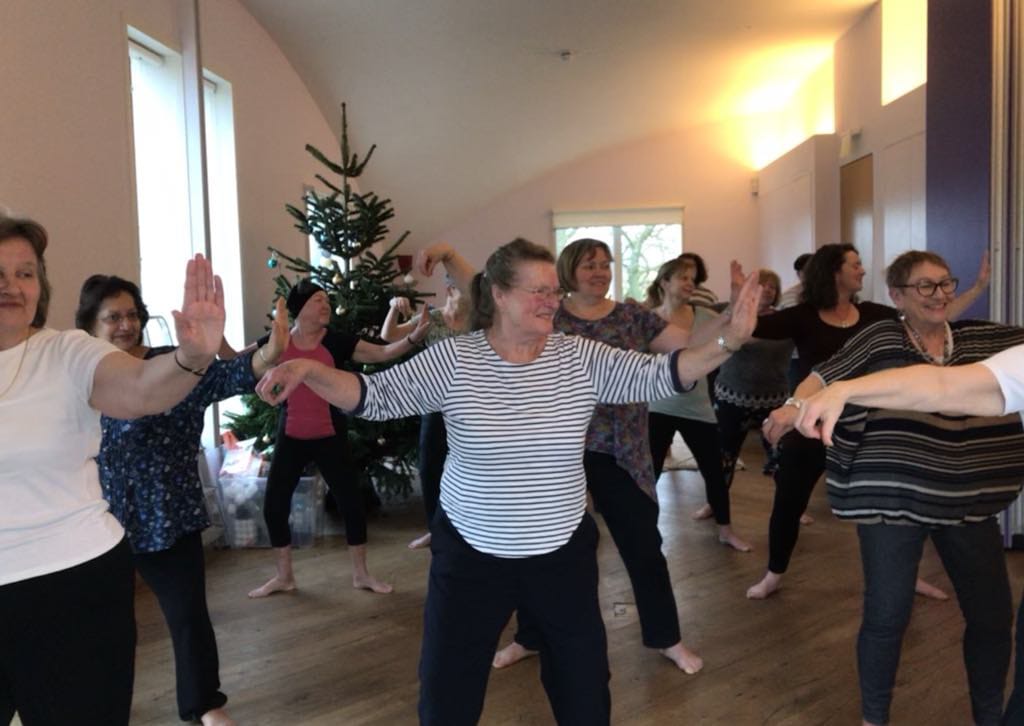
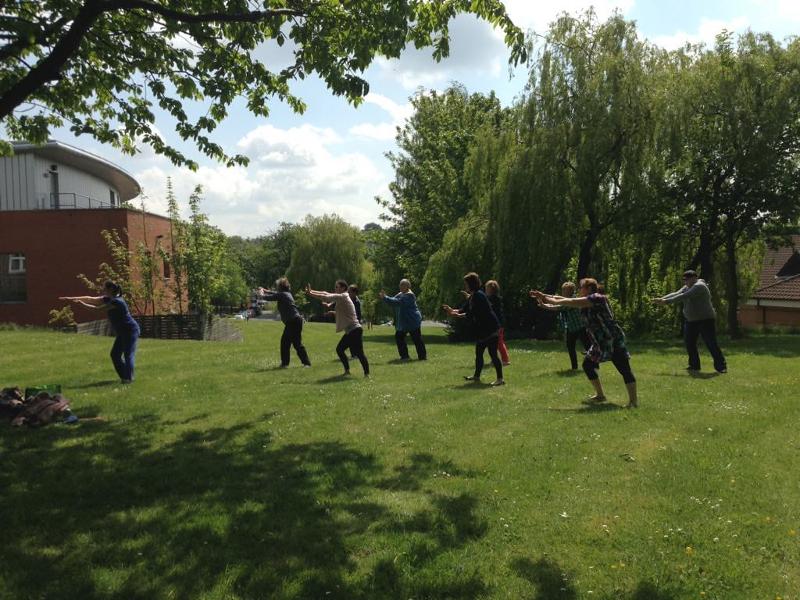
Students practising Tai Chi at The Maggie Centre Nottingham
Q. What is the difference between Tai Chi Chuan and Tai Chi?
A. Tai Chi Chuan is the accurate name for the Martial Art: "Tai" can be translated as "supreme", "Chi" as "ultimate" and "Chuan" as "fist" or "boxing". Tai Chi is just a shortened version and a more casual way of saying it, but has since been more associated and practised more widelyas a form of exercise and meditation.
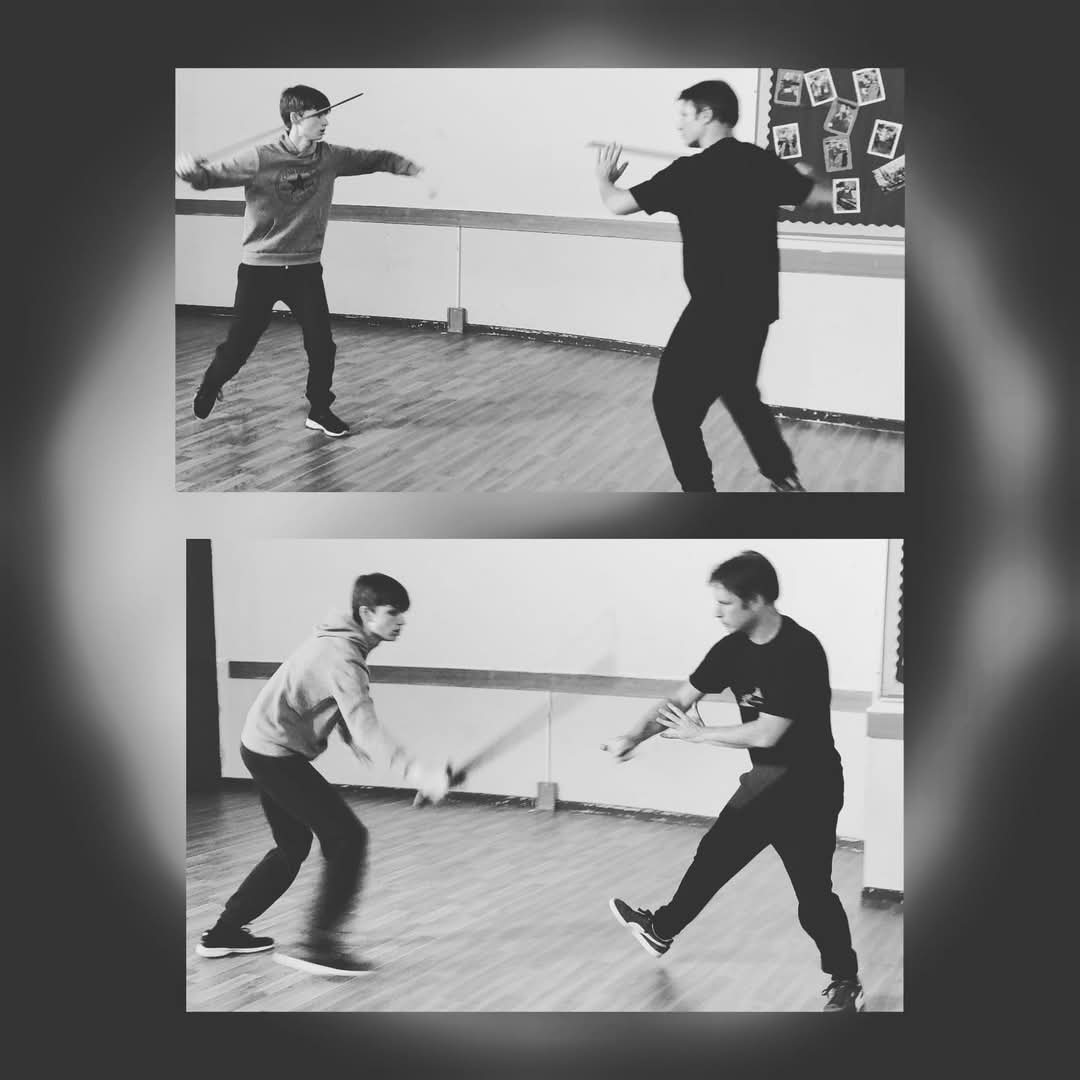
Q. Does Tai Chi Chuan have grades and a coloured belt system?
A. The coloured belt system you refer to tends to be more associated with the Japanese martial arts such as Karate and Judo, where it plays a role in encouraging students to work harder and represents progression. Whilst we don't participate in a grading system we do have students/beginners which are referred to as Tudi, which means 'apprentice younger brother/sister'. Once they have reached the required level of proficiency and have undergone the Baishi/Respect the Master ceremony, they become Men Ren, 'inside the door students'. These are represented in the class with a white shirt for Tudi, and a black shirt for Men Ren.
The Practical Tai Chi Chuan International system which I represent has a nine-level teacher certification system, with level one being Junior Instructor (Essence), and level nine being Principal Instructor (The Fool).
